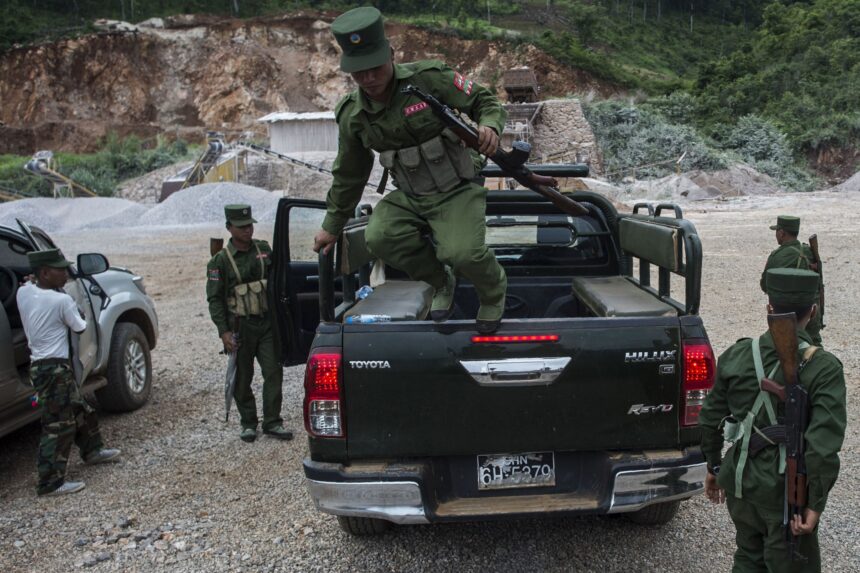BANGKOK — Deep in Myanmar’s eastern Shan State, a new alliance is shaping the world’s rare earth metals trade, with serious consequences for both the environment and global politics. The United Wa State Army (UWSA), a well-armed group with Chinese support, has gained control of new rare earth mines.
These sites are run by Chinese citizens as Beijing tightens its hold on minerals needed for electronics, green energy, and defence. Mining takes place north of the Thai border, between Mong Hsat and Mong Yun, strengthening China’s dominance over rare earths while polluting rivers that flow into Thailand’s Chiang Rai province.
Rare earth metals like dysprosium and terbium are essential for electric vehicles, wind turbines, and military technologies. China processes close to 90% of these minerals and depends heavily on Myanmar for raw supplies.
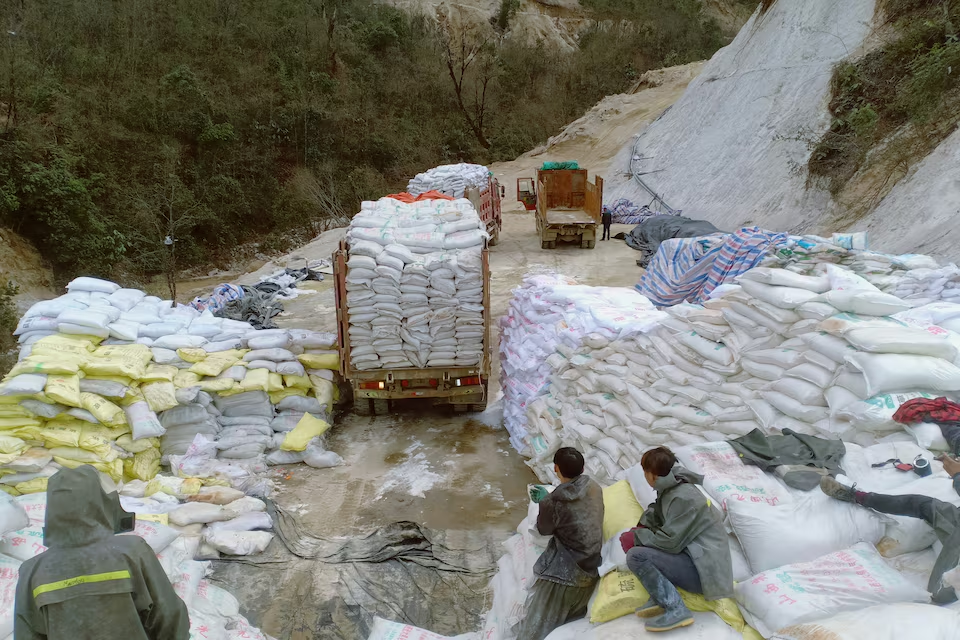
In early 2025, Myanmar provided about half of China’s rare earth imports, data from Chinese customs shows. But fighting in northern Kachin State, where the Kachin Independence Army took over a main mining area, has cut China’s access to these resources.
In response, Chinese miners backed by the UWSA have moved operations to Shan State, which is more stable than other conflict areas in Myanmar. Satellite images from Planet Labs and Maxar Technologies, reviewed by Reuters, reveal the rapid growth of mining sites since 2023.
Pools used for extracting rare earths fill the forested hills near the Thai border. By early 2025, at least a dozen of these pools appeared at one location, with 20 more close by, showing the scale of the activity.
The UWSA acts like a state within a state, controlling a large section of Shan State about the size of Belgium. With up to 35,000 fighters armed mostly with Chinese weapons, this group has long served Beijing’s interests, according to the US Institute of Peace.
The group’s direct involvement in protecting these mines, not previously reported, highlights China’s efforts to secure mineral supply lines as it faces growing trade friction with the US.
China’s Supervision on the Ground
Chinese-speaking supervisors oversee the mines in Shan State. Workers and reports from the Shan Human Rights Foundation confirm that at least one site displays a Chinese company logo. More than 100 workers rotate through day and night shifts, digging and using chemicals to extract minerals before trucking them 200 kilometres to China’s border.
Myanmar’s opaque business records make it hard to identify ownership, but the mix of Chinese operators and UWSA protection points to strong links with Chinese state-backed companies.
Patrick Meehan, a University of Manchester lecturer who studies Myanmar’s rare earth trade, described the Shan mines as “mid-large size.” He said these are the first major rare earth operations outside Kachin State. “There’s a whole belt of rare earths running through Kachin, Shan, and parts of Laos,” Meehan explained, showing the untapped resources in the region. The move to Shan State fits China’s strategy to avoid supply disruptions caused by conflict in Kachin.
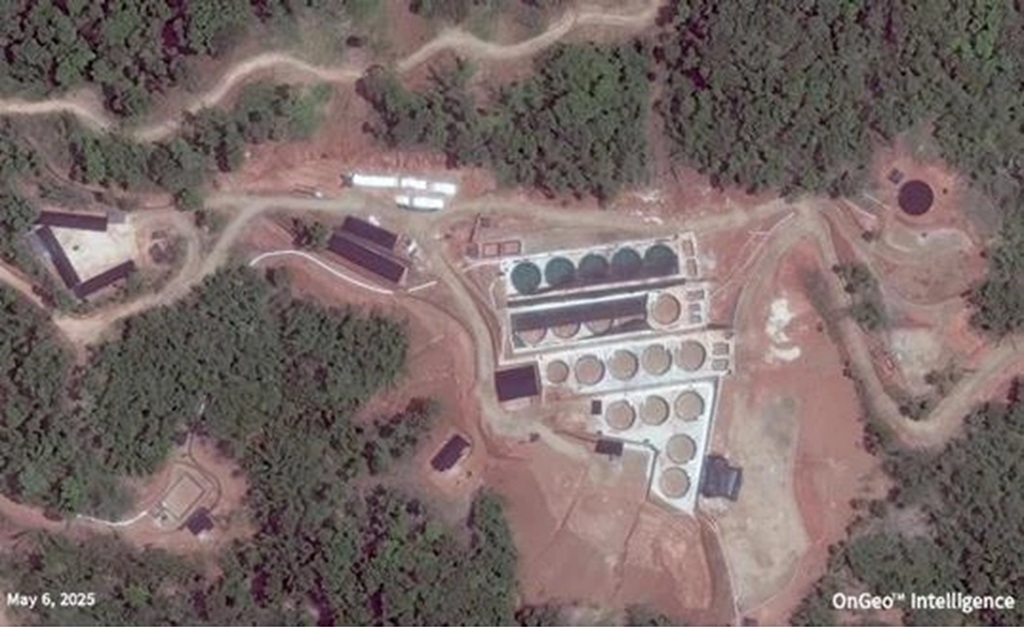
Rising Environmental Damage
China’s push for rare earths comes with a heavy environmental price. Shan State’s mines, like those in Kachin, use in-situ leaching, which involves pumping chemicals into the ground to extract minerals. This method often leads to soil and water pollution. A 2022 Global Witness report revealed how unregulated mining in Kachin left toxic pools and polluted waterways. Similar problems are now appearing in Shan State.
The Kok River, which starts in Myanmar and enters Thailand’s Chiang Rai, is heavily affected. Ahead of Thailand’s Songkran festival in April 2025, Chiang Rai residents were told to avoid the river after tests showed high arsenic levels, likely caused by mining in southern Shan State.
Arsenic, mercury, and cyanide—used in extracting both gold and rare earths—have contaminated the Kok and Sai rivers, harming fish and putting farming at risk. Reports of sick fish and health issues for local communities have sparked anger among Thai environmental groups.
“The impacts are clear: people can’t use the river for water, irrigate gardens, or celebrate festivals,” said Phra Mahanikom, vice abbot at Wat Thaton temple in Chiang Rai. Environmental campaigners warn that pollution could reach the Mekong River. Niwat Roykaew, a Goldman Environmental Prize winner, stressed that the river’s natural value should come before profit. “Problems on the Mekong won’t stop if governments only see money in its resources,” he said.
Geopolitical Stakes
The UWSA’s involvement in Shan State’s mines highlights China’s use of proxy groups to keep its influence in Myanmar, which has been in crisis since the 2021 military coup. While Beijing supports the junta on paper, its ties to the UWSA—a group with a 35-year truce with the Myanmar military—let it work in a stable area without direct involvement in the fighting.
“The Wa region has seen peace for over 35 years. For Chinese companies, it’s the safest option in a divided Myanmar,” said Jason Towers, Myanmar director for the US Institute of Peace.
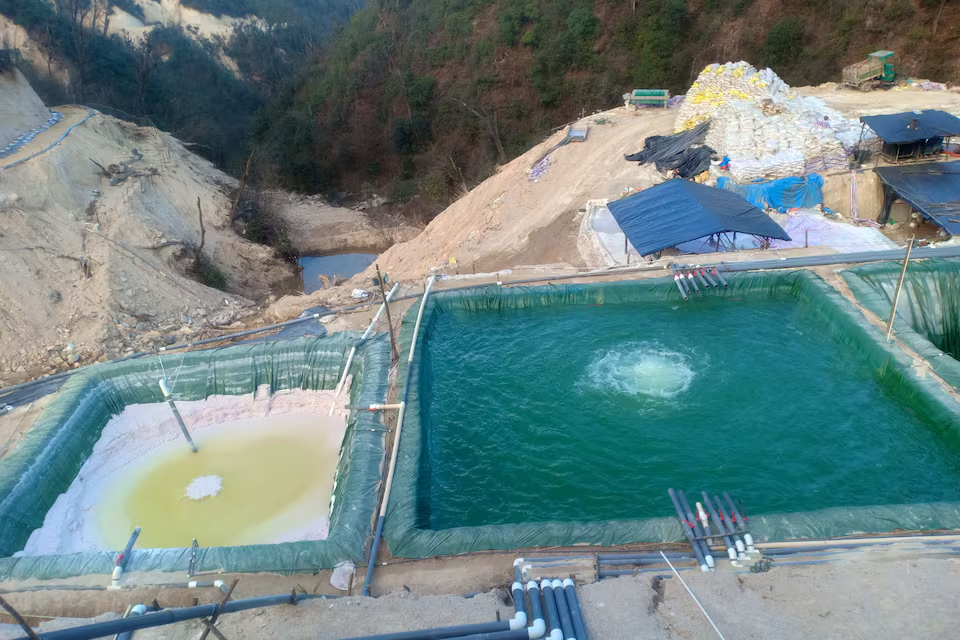
This shift comes as demand for rare earths jumps, driven by the push for green energy and growing competition between major powers. China’s recent export limits on rare earths, linked to renewed trade tension with the US, have sent prices climbing.
Shanghai Metals Market reports prices for terbium oxide up more than 27% in six months, with dysprosium oxide rising about 1%. The new mines in Shan State, rich in these metals, are set to play a key part in China’s resource strategy.
Environmental and human rights groups have raised alarms over these operations. The Shan Human Rights Foundation, which first flagged the new mines in a May 2025 report, called for closer review of China’s involvement.
China’s Grip on Myanmar
“The rare earth trade is still murky, and environmental rules are barely enforced,” said Ailey Zaulawt, a Myanmar-born researcher in Chiang Rai. Global Witness has urged Western governments to impose sanctions on Myanmar’s rare earth sector to cut funding that may support the junta’s abuses.
China’s Foreign Ministry told Reuters that Chinese companies abroad must follow local laws and act responsibly. The UWSA and Myanmar’s military government did not reply to requests for comment, leaving the question of accountability open.
With supply chains already under strain from China’s export controls, the new mines in Shan State show how Beijing is willing to tap unstable regions for key minerals, often harming local communities and the environment.
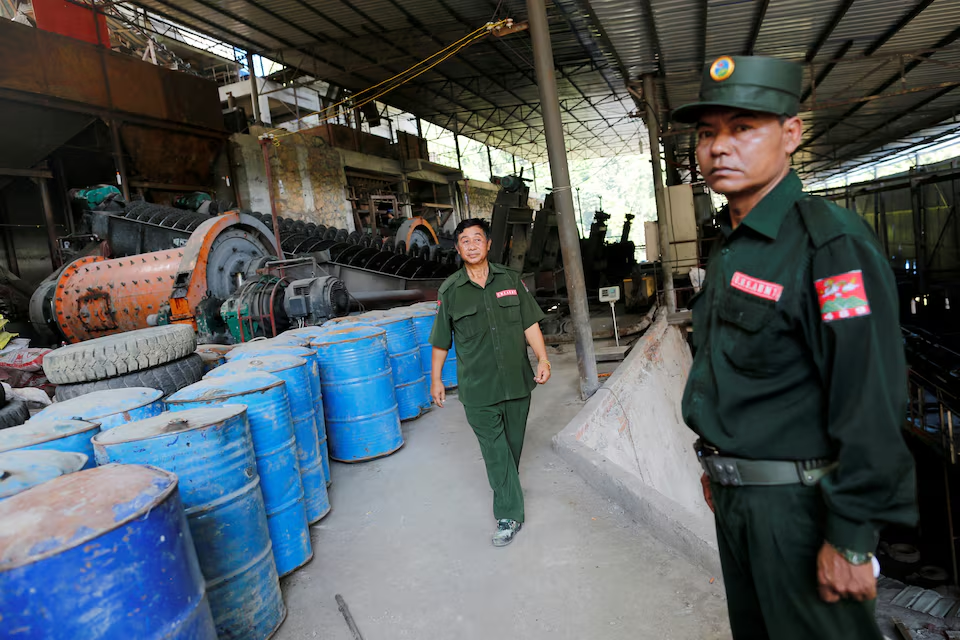
The growth of rare earth mining in Shan State, driven by the UWSA and Chinese nationals, shows how global politics, resource pressures, and environmental harm are closely connected.
As China keeps its grip on these critical minerals, the world faces a hard choice: how to support clean energy without sacrificing ethical standards or the health of local communities. For the people of Shan State and Chiang Rai, the immediate concerns are clean water, safe farmland, and protection from pollution.
As Niwat Roykaew put it, “We need to value the river for its natural worth. That’s the only way forward.” Without global action, China’s proxy-backed expansion in Myanmar could become a model for resource extraction in other conflict zones, with impacts reaching far beyond Shan State.




